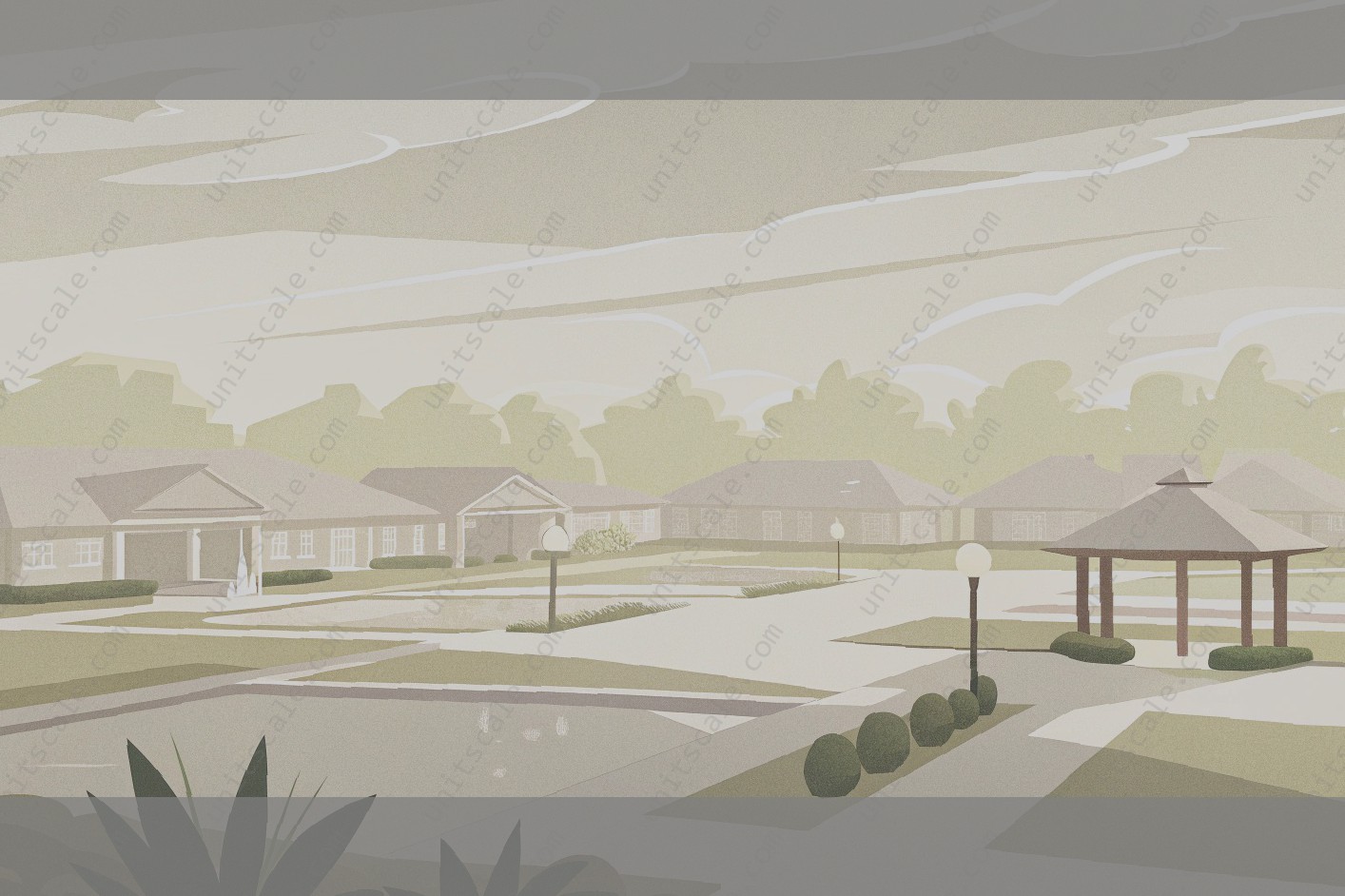What is a HOA and What Do They Do?
Homeowners Associations (HOAs) are governing bodies formed by a collection of homeowners sharing common interests, almost always to maintain a shared space. A typical association has a board of either elected or self-appointed officials. The board establishes and administers all covenants and bylaws, levies assessments and fines, and enforces general upkeep and appearance standards on members. In most instances when everyone meets their obligations, there is relatively little need for enforcement. The trouble starts when things begin to fall through the cracks.
In many areas of the country, homeowners set up an HOA to manage a community of custom-built properties that share a range of amenities such as a shared pool, landscaping and other facilities . Typically, the HOA grapevines who is buying property in the community, contacting potential residents to ensure the new purchases are in compliance. This adds to the value of the property. When HOA rules are broken, fines help the association reach out to the delinquent homeowners to bring them back into compliance.
In some communities managed by an HOA strategy, they may be set up as an adjunct to a high-rise building or cluster of similar structures. The common areas are under the control of the HOA, which manages and maintains them, sometimes for an annual fee. The fee charged by the HOA can vary widely from a few hundred dollars to a few thousand per year, which is used to pay for upkeep of the common areas. Homeowners who default on paying HOA fees may find the association puts a lien on their property, making it difficult to sell until the overdue fees are paid.

Why Do HOAs Charge Fines?
While it could be argued that fines are an appropriate, and possibly required, element of the HOA’s enforcement process, it is important that homeowners understand the reasons behind the fines. Fines are typically imposed for any of the following reasons:
Violations of Community Rules
Violation of a rule, covenant or restriction of the community constitutes cause for the imposition of a fine. Association can enforce its rules by first sending a written notice to the owner of the infraction. If the owner fails to remedy the infraction, the owner is entitled to request a hearing prior to the imposition of a fine. If the hearing does not result in the remedying of the infraction, the fine is imposed.
Non-Payment of Dues
Another very common reason homeowners are fined is non-payment of dues. When dues are not paid, it is the responsibility of the association to utilize its collection policy. Although enforcement of the HOA’s collection policy may be a proper use of fines, this issue is dealt with at length in our March blog.
Can HOAs Legally Charge Fines?
To determine whether your HOA can legally fine you, you first need to know the type of legal structure your HOA operates under. In California, there are three commonly used legal forms for home owners associations; a public benefit corporation (sometimes referred to as a nonprofit), a mutual benefit association, and a common interest development (CID). Both types of associations have somewhat different rules under California law.
Common Interest Developments are governed under the Civil Code 4226-6830 (detailed sections of this code are often referred to as the Davis-Stirling Common Interest Development Act or Davis-Stirling). Civil Code Section 5850 establishes that fines imposed on an owner of a lot in a CID must be consistent with the discipline policy provided to that owner. For instance an HOA might write its rules and policy on discipline and notification before they can impose fines in their CC&Rs or bylaws. Failing to consistently follow the process outlined in the disciplinary policy would likely constitute grounds to invalidate the imposition of a fine as prohibited by Civil Code 5650. There are specific rules defined by Civil Code Section 5850(e)-(i) limiting the amount an association can fine an owner for violations of the CC&Rs or Rules. Specifically a fine cannot exceed $10.00 per violation if defined as a monetary penalty, or $100.00 if defined as a charge for service.
Mutual Benefit Corporations and Public Benefit Corporations are governed under the Corporations Code 7110-7200. This section of the code defines some requirements for Home Owners Associations, such as qualifying for tax exemption, the necessity of conducting elections, and restricting the ability of a board to withhold assessment payment as a disciplinary action. It says nothing that limits an HOA’s ability to impose fines as disciplinary actions.
HOAs structured as Nonprofit Mutual Benefit Corporations typically look to their governing documents (CCRs / Dbyls / Articles of Incorporation) for guidance on the imposition of fines. These governing documents often only broadly define the ability of an HOA to discipline the owners, but do not identify how a fine should be imposed.
The State Department of Consumer Affairs also issued a regulation defining actions that unfairly decieve or deceive the public that apply to HOAs (Civil Code 1723).
HOAs may impose fines outside of the regulatory structures found in the Davis-Stirling Act or the Corporations Code if they notify you in advance with proper notice of an amendment to the HACs or Disciplinary Policy.
HOA Process & Limitations for Charging Fines
In most cases, an HOA will first issue a notice of violation to the member followed with several opportunities for the member to come before the HOA board to contest the fine. The process typically involves sending one or more violation (or demand) letters to the member advising that the member is in violation of a covenant which, in turn, is subject to a fine/penalty in a specific dollar amount. The member is often given the opportunity to remediate the violation; to contest the fine and/or to remediate the violation prior to the imposition of the fine. In either case, the HOA should evenly and consistently enforce its rules and regulations.
It is very important that the HOA follow its rules and procedures for fine imposition and enforcement found within the governing documents (i.e. the Declaration of Covenants, Conditions and Restrictions in Colorado is often referred to as the "CC&Rs" and outlines the specific rules that all residents must follow). For example, the Declaration should provide the maximum amount that the HOA may fined a member and the types of violations that the Board will impose fines. The Board generally has discretion to assess fines but there are often limits placed upon the Board by the Declaration of Covenants. Moreover, some Declarations may require that members receive notice and a hearing (as detailed above) while others may do not. Again, it depends upon the governing documents.
Some states have laws that help guide the HOA in the imposition of fines. These laws can vary from state to state. For example, the Colorado Common Interest Ownership Act ("CCIOA") is a set of laws that governs how HOAs are operated. Under CCIOA, if a member is charged a fine the member must be provided with a written notice of the fine. In addition, the member must also be provided with a hearing prior to the fine being imposed except in cases of an emergency.
Disputing a Fine Imposed by Your HOA
If you are the unfortunate one that received a fine from your Homeowners Association and you believe the fine was improper, you have a right to challenge it. Of course, the first step is to pay the fine to avoid late fees and penalties. But if you do not agree with the fine, requesting a hearing is your opportunity to convince the board the fine is improper.
In Florida, there is a legal mechanism that allows HOA members to challenge an HOA fine during an official hearing before either the HOA Board or a legal committee appointed by the Board. The hearing must be requested in writing by the owner requesting the hearing.
The first step is to check the governing documents for your community to see if a hearing committee has already been appointed by the Board. If so, the fine should have been sent to the Committee and they are the ones that will conduct the hearing. If the penalties have been sent to the Board, then the Board members will go through the legal process to appoint a committee to hold the hearing.
The hearing committee is not a part of the Board and must be independent of the issues being considered. The basis for this independence is that the hearing committee listens to the facts and decides if the association has met its burden of proof . After the hearing, the committee’s written decision must be provided to the homeowner and the Board must provide the homeowner a payment plan in cases where an owner’s delinquent payments have been accelerated, taking away the opportunity for the owner to catch up without penalties being added.
If the committee finds the violations are unfounded or the amount of the fines were excessive, the committee has the authority to issue a written ruling advising of such and directing the Board to cancel the fine. Even if the committee finds against you, additional steps for appealing the fine are possible as long as the requirements of the governing documents and Florida Statutes are followed.
Understand that the scope of the hearing conducted is limited only to the fines assessed by the Board and therefore, the committee can only consider evidence pertaining to the fine(s) for which the committee was established. The committee cannot impose any demands or requirements on the Board. Only the Board has that authority.
Finally, remember that the hearing committee is not bound by prior decisions made by either the Board or previous hearing committees. Each committee conducts its own hearing and determines the evidence and facts particular to that hearing.
What Happens if You Don’t Pay HOA Fines?
Failure to pay HOA fines can result in a number of consequences, ranging from additional charges and "tacked on" fines added to the underlying debt, to attorneys’ fees and costs awarded in litigation before the Association can record a lien against your real property. It’s important to note here that any unpaid fines, penalties, or fees can accrue interest until fully paid or satisfied. A homeowner’s failure to promptly respond to a demand from the Association to pay off an outstanding charge can also lead to additional, significant fees which can be added onto the underlying bill (i.e., a $50-$100 "file and lien" fee), as well as additional attorney fees if the Association retains legal counsel to file a lien or enforce the debt collection via litigation.
The Association is also entitled to recover attorneys’ fees and costs incurred in enforcing its rights pursuant to the Association’s governing documents (such as its CC&Rs and bylaws), the Civil Code, and any applicable case law. This means that when an Association has to file a lawsuit to enforce a debt, it typically incurs upwards of $1,200 to $1,500 in legal fees alone for the filing of the initial lawsuit, regardless of whether the homeowner appears in court. This amount typically increases significantly when an Association’s collection attorney continues to have to prepare multiple motions to compel a homeowner and his or her attorney to comply with that lawsuit. The vast majority of associations do not have the ability to waive these fees and costs – if they had unlimited resources, they would not have to charge homeowners fines, penalties, or fees; they would simply be able to absorb all of the costs of maintaining and running the association themselves. This means that almost invariably, amounts that are awarded in successfully enforced fine and fee lawsuits against homeowners become their responsibility to pay, and this process usually does not result in a "net savings" for a homeowner.
Once the Association is successful in its collection lawsuit, the Court will usually award a lien against the real property of the delinquent homeowner, pursuant to California Civil Code § 5675(b)(1). In some cases, the Court may also require that the homeowner pay the Association’s filing and service fees associated with "registering" that lien on the homeowner’s real property. As a homeowner might imagine, if he or she has been ignoring the fines, penalties, or fees accrued, associations often choose to place additional liens on that person’s property until that amount, along with the accumulative legal fees incurred by that homeowner, is paid off in full.
While most homeowners recognize that they are bound by the rules and regulations of their associations by virtue of being an owner of property within those associations (and therefore agree, through their purchases, to the payment of fines, penalties, and fees to ensure their compliance with those rules), some homeowners still choose to ignore the one or more mechanisms that associations have at their disposal for the collection of these fines, penalties, and fees for whatever reason they may have. This tends to be a mistake, however, and one that is often very costly for homeowners in the long run for that very reason.
How to Collaborate With Your HOA
Homeowners who receive fines and wish to voice their concerns about the fine, or the HOA’s policies, have avenues by which they may express their opinion. However, the homeowner needs to remember that just because a homeowner disagrees with a fine does not mean that the fine itself is invalid.
Here are some constructive ways that a homeowner can work with their HOA:
- Write a letter to the HOA board addressing the issue.
- Attend HOA meetings to raise issues with other members, and present your case to the entire board, not just the management company. If you attend a board meeting, take time to know how to properly be placed on the agenda. Homeowner comments are usually toward the end of meetings , not the beginning. Make sure to read the HOA governing documents to know how to be placed on the agenda.
- Do not make accusations, rants or threats during the meeting or in the letter. If you do, you will lose the respect of the board, and they will disregard you as someone trying to get the board to see their position.
- Form a committee to address the issue, and then bring a unified group who will address the issue at the board meeting.
- Run for the board if you find that the policies or procedures you disagree with will not change, or that you believe they would change if homeowners were serving.


